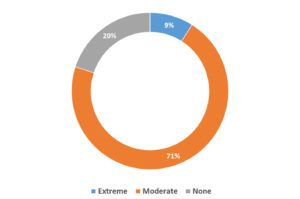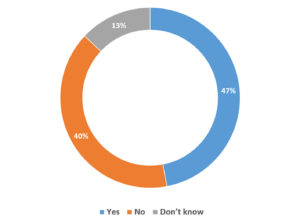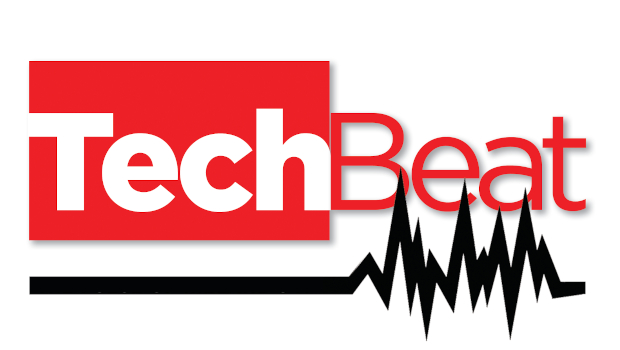How we work is changing. The evolving demographic profile of the workforce, the places we work from, the information we are creating and sharing, and the technologies and tools available to us, are all reshaping how we do our jobs. Effective knowledge sharing is crucial for growth, but managing mobility and productivity tools is becoming a challenge.
TechBeat, in association with Ricoh Ireland, sought to explore the opportunities and challenges that are being created by these new ways of working, to see if organisations are meeting the demands of all generations in the workplace. The survey looked at how organisations are dealing with more mobile ways of working, and the evolving tools, infrastructures and processes that are being used to enable this digital transformation, with a view to such implementations being a foundation for growth.

How much pressure is your organisation under to implement new technology as a result of work style-related disruption?
The survey was conducted in September among 135 IT professionals.
The first question was to ascertain the level of pressure under which organisations found themselves to implement new technology as a result of work style-related disruption. The majority (71%) said such pressure was moderate, while nearly one in 10 (9%) indicated it was extreme.
“This clearly demonstrates that the vast majority of Irish organisations are under pressure to implement new technologies as a result of work-style disruption,” said Gary Hopwood, general manager, Ricoh Ireland. “This mirrors what we are seeing in the Irish marketplace.”
“The way people are working is changing at a rapid pace. Employees are working on multiple devices and from multiple locations. Many companies and their employees are working more flexible hours too as business has become more globalised. Employees are also increasingly seeking to work at times that give them a better work/life balance. On top of all of this, there’s a wider digital transformation taking place that’s changing the way we do business and the processes surrounding this. The challenge for most IT decision makers is choosing the technologies which are a best fit for their organisation and managing them effectively — while remaining agile, secure and competitive.”
Respondents overwhelmingly (78%) confirmed that there are fundamental differences in the work styles of employees from different generations in the organisation. However, of those that observed this difference, less than half (47%) felt that IT tools and processes were adapted to facilitate the different generations to work to their best potential. Some 40% said that the tools and processes were not up to the task, while 13% said they did not know.

Are your IT tools and processes adapted to facilitate the different generations to work to their best potential?
Hopwood said that those organisations unable to facilitate each generation to work in different ways will get left behind in a highly competitive marketplace.
“We feel it’s imperative,” said Hopwood, “that new generations of young professionals entering the workplace should have access to the technologies that they are comfortable working with so that they can be fully engaged and productive. At the same time, it’s important that the technological needs and workstyles of older generations are not cast aside either. Enterprises should look for ways in which they can empower people to work in the manner they feel most comfortable — across all generations — to boost collaboration and productivity across the company.”
Despite these difficulties, more than half (56%) of respondents felt that investment in digital infrastructure would increase business profitability, against 40% who felt it would have no impact and 4% who did not know.
When asked about whether office workers were generally concerned about their personal privacy, with regard to the growth in digital information their organisations can now access, such as their location, hours online, emails sent on Wi-Fi etc., more than half (54%) said they were. However, that leaves a significant 47% who said they were not. It is difficult to interpret whether this is a rising concern, or whether, in the business context, users were confident in their organisation’s handling of their data.








Subscribers 0
Fans 0
Followers 0
Followers